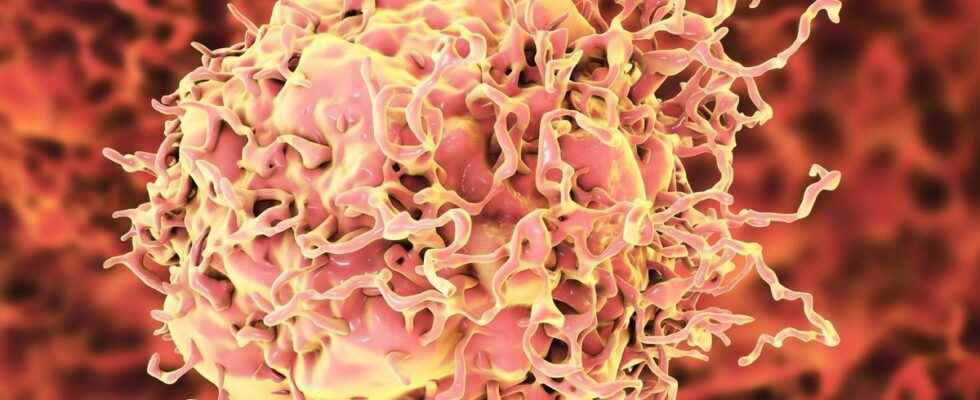Published on
Updated
Reading 2 mins.
in collaboration with
Dr Gérald Kierzek (Medical Director of Doctissimo)
Medical validation:
August 10, 2022
This Saturday, August 6, the singer died of cancer at the age of 60. What is this disease and how to spot it?
The unforgettable interpreter of “The desire to love” had been fighting colon cancer since 2019. His wife, Sandrine Aboukrat, had announced the deterioration of his state of health Thursday August 4 on Instagram. She had notably called on the singer’s fans to “pray for him”.
The artist was following a new treatment protocol
For several years, the artist wanted to be transparent with his fans about his illness. After revealing his cancer in April 2019, he announced that he was getting better a few months later.
Then, even though he had planned a tour for 2022, his state of health had deteriorated. Daniel Lévi had to be hospitalized and operated on urgently on April 16.
Some time later, at the end of July, the singer’s wife explained that her companion was going to start a new treatment protocol to fight against cancer. A treatment that will not be enough to save the singer.
Consult an oncologist online
Colorectal cancer, or cancer of the colon-rectum, kills more than 43,000 people in France each year. However, if detected early, it is possible to cure it more easily (9 times out of 10).
To identify it, an immunological test must be carried out every 2 years, from the age of 50. It is intended for women and men with no symptoms or specific risk factors.
The test, which aims to detect the presence of blood in the stool, comes in the form of a blue envelope. It contains an identification sheet for the return of the result, a stool collection device, a sampling tube, a protective bag, instructions for use and a return envelope.
Once done, it must be sent to the medical biology laboratory. If blood is found in the stool during the test, a colonoscopy – a test that looks inside the intestine – is done.
Prescribed in the event of unexplained intestinal symptoms (pain, diarrhoea, intestinal bleeding, etc.) and a family or personal history of colorectal cancer, it is the most reliable screening test for highlighting lesions in the colon.
If polyps are detected, an operation will be scheduled to remove them (and thus prevent them from turning into cancer).
Good to know : the earlier the polyps are detected, the greater the chances of recovery.
